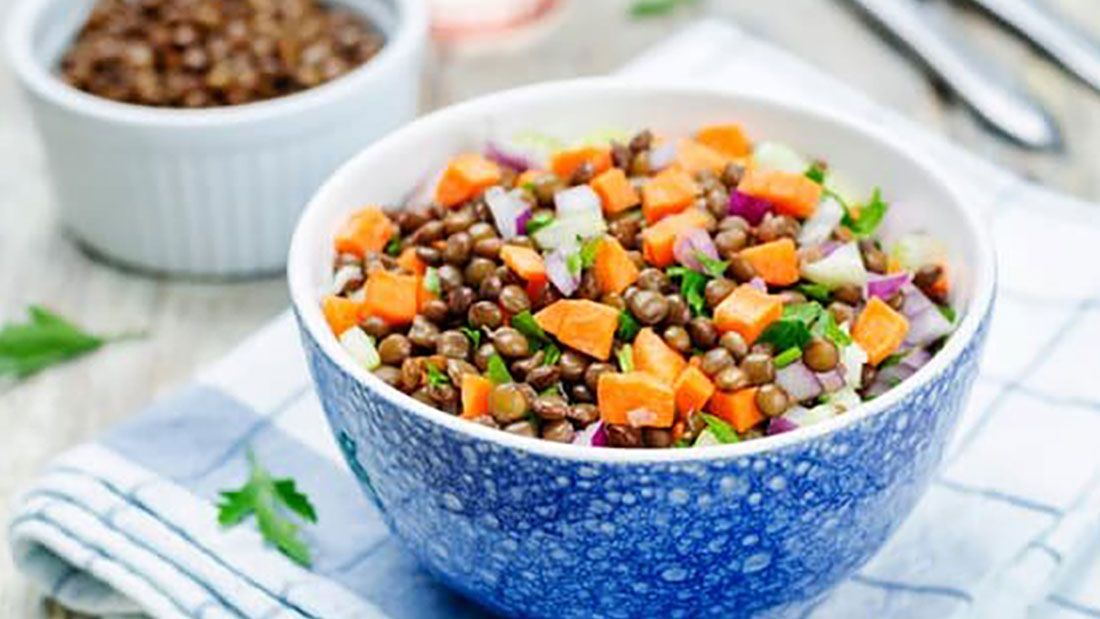5 Ways To Protect Your Brain With Plant Foods

Alongside staying physically and mentally healthy, diet is a major factor in protecting your brain from decline and reducing the risk of diseases such as dementia, cognitive and memory problems.
These five simple changes could help keep your brain sharp into your later years.
1. Supplement with B12 and vitamin D
Low levels of both B12 and vitamin D are considered a risk factor in developing Alzheimer’s disease, so it’s important that we’re getting enough.
Although you can get B12 through foods such as Marmite and fortified foods such as nutritional yeast, plant milks, yoghurts and cheeses, Viva! recommends taking a daily vitamin B12 supplement providing 50 micrograms per day, or one weekly supplement providing 2,000 micrograms.
Vitamin B12 also helps maintain healthy nerve cells. Without sufficient B12 you can experience depression and cognitive problems such as impaired memory, understanding and judgement.
Similarly, due to a lack of sunlight over the autumn and winter months, it is advisable for everyone in the UK to take 10 micrograms of vitamin D a day, regardless of diet. Some research suggests vitamin D deficiency may be linked to depression and supplementing might help some people.
2. Fill up on flavonoids
Flavonoids are a group of natural compounds found only in plants. Alongside their antioxidant properties, they may also help to protect your brain.
They are found in their greatest concentration in fruits and vegetables of the brightest colours. Berries – especially strawberries – are a particularly good source.
In one of the long-term study, it was found that those that consumed the most berries had a significantly lower risk of developing Parkinson’s disease. Another study showed that a high intake of flavonoids, especially from berries, slowed rates of cognitive decline in older adults.

3. Focus on wholefoods
Whilst plant-based diets are linked to a lower risk of Alzheimer’s than meat and dairy-based diets, you can still lower your risk further by minimising some of the more harmful fats in your diet.
Being overweight or obese in middle age, and having high levels of cholesterol, increases your likelihood of developing Alzheimer’s and dementia in later life.
Saturated fats such as those found in coconut oil, palm oil, cakes, biscuits, sweets and processed foods can contribute to your risk of developing a whole host of chronic diseases, including dementia if consumed in high amounts.
Although the odd biscuit or cake here is unlikely to make a huge difference to your health, sticking mainly to a wholefood vegan diet will cut your risk of developing these diseases substantially.
Eat at least five portions of fruit and vegetables every day (aim for 8-10), pulses (peas, beans and lentils) and stick to wholegrain foods such as brown rice, wholemeal bread and wholewheat pasta, plus a moderate amount of nuts and seeds – a small handful a day.
4. Add turmeric to your food (or take a supplement)
The wonder-spice turmeric should be included in your diet for many reasons; one of them is the incredible neuroprotective properties of its main ingredient – curcumin.
Several trials have found curcumin to be effective in reducing depression, whilst other research discovered that regular curcumin intake helps to improve working memory and mood.
It may also protect the brain from age-related, neurodegenerative diseases such as Alzheimer’s disease but the science isn’t clear yet.
For everyday use, fresh root or powder are excellent. It can be added to savoury and sweet dishes, drinks, smoothies, baked goods, soups and many, many more!
5. Get your omegas
We’ve all heard fish described as brain food, despite this myth being dispelled, time and time again, the idea pervades.
We do need omega-3 fats to keep our brains healthy, but we don’t need to get them from fish, which has a whole host of health risks – that’s why fish carries a government health warning saying not to eat too much!
The type of omega-3 fats we need to support healthy brain function are called EPA and DHA. The incredible human body can convert ALA (the omega-3 fat found in plant foods) into EPA and DHA, providing that you’re eating enough.
ALA is found in flaxseed (linseed) this is the richest source by far. Walnuts, hempseed and rapeseed oil are also good sources. To get the recommended amount, include two tablespoons of ground flaxseed (whole seeds go straight through you) plus a small handful of walnuts a day. Alternatively, include two teaspoons of flaxseed oil a day – don’t cook with it as that will destroy its beneficial properties.
Fish get their omega-3s from the algae that they eat, so one option is to just skip the middleman and take an algae-based EPA and DHA supplement. Viva! sells one here or you can look online.




